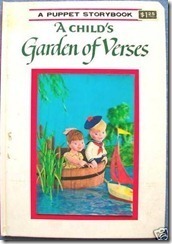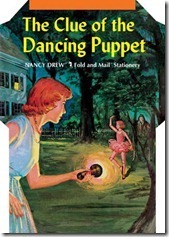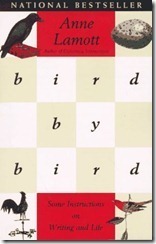Riley Adams's Blog, page 218
December 24, 2010
Twitterific
![Terry3_thumb[1]](https://i.gr-assets.com/images/S/compressed.photo.goodreads.com/hostedimages/1380445986i/1570749.png) Here are writing links that I've posted to Twitter for the past week. The list will be a little shorter this week because I'm going on tweetcation (most bloggers seem to be taking a break until New Year and the content is pretty scarce.)
Here are writing links that I've posted to Twitter for the past week. The list will be a little shorter this week because I'm going on tweetcation (most bloggers seem to be taking a break until New Year and the content is pretty scarce.)
If you're looking for a particular topic, just plug in your keyword into the search box at the top left-hand corner of the blog (on the black header right above my blog name…next to the Blogger symbol…the small search window is next to the magnifying glass) and the roundup with your subject will come up. To narrow your search down on the page, do a CTRL+F, type your subject, and hit enter.
I'm also archiving these posts in what I hope is an easily searchable format—if you look at the Twitterific tabs under the blog's heading, I'm posting the links there, too.
Resist the Urge to Explain: http://dld.bz/Cn8j
Darkly Developing Dexter-A Lesson In The Literary Anti-Hero: http://dld.bz/Cn7F
Amazon.com Kindle Sales Are Said to Exceed Estimates: http://dld.bz/Cn6U
Writers Rally To Support Novelist Charles Bock & His Family: http://dld.bz/Cn8u
Tips for Writing Verse Novels: http://dld.bz/Cn5h
"Traditional" publishing – let's just change the definition, shall we? http://dld.bz/Cn46
Keep it real, only more interesting: http://dld.bz/Cn4s
Get Over Overstating: Trimming Unnecessary Words: http://dld.bz/Cn4q
Key elements of strong fiction: http://dld.bz/Cn4f
10 ways to finish that danged first draft: http://dld.bz/Cucg @elspethwrites
Setting writing goals, step 3--finding time to write and writing: http://dld.bz/Ct6x
A case for villains: http://dld.bz/Cn3W
Using defense mechanisms for characters: http://dld.bz/Cn3K
J.K. Rowling and Plot Planning: http://dld.bz/Cn3C
A writer's impressions of Twitter: http://dld.bz/CtWj and http://dld.bz/CtWk @authorterryo
A little word play fun: http://dld.bz/CtU5 @MermaidHel
Six Pet Hates of An Editor: http://dld.bz/Cn3a
The Simple Software That Could -- but Probably Won't -- Change the Face of Writing (The Atlantic): http://dld.bz/Cn2N
29 literary films to fill your holidays (LA Times): http://dld.bz/Cn2s
Your To-Do List: Knowing Where to Start: http://dld.bz/Cbbx
Myst. Lov. Kitchen: http://bit.ly/h8zhNg @CleoCoyle
E-readers breed fondness for other e-readers (LA Times): http://dld.bz/Cn5t
The Twelve Days of a Writer's Christmas: http://dld.bz/CbcG
WikiLeaks' Julian Assange will write memoir: http://dld.bz/Cn6A
When (or Why) Social Media Fails to Sell Books: http://dld.bz/Cbc6
Writing Ebooks: Top 3 Ways to Make Sales: http://dld.bz/Cba7
Balancing the Scenes that Make Up Your Novel: http://dld.bz/Cbcn
4 Reasons Every Novelist Can Benefit From Writing a Screenplay: http://dld.bz/CbbP
Setting writing goals, step 2--links to conferences, blogs, and resources to help you improve: http://dld.bz/Cjmb
Modeling Protagonists After Real Life Heroes: http://dld.bz/Cbb3
Your To-Do List: Knowing Where to Start: http://dld.bz/Cbbx
Top 75 Apps for Enhancing Your Facebook Page: http://dld.bz/CbaU
Prologues – this side of hell: http://dld.bz/CbaC
Author Turns Going-Out-of-Print into Act of Charity: http://dld.bz/Cba8
Nice list of writers' conferences in North America for 2011: http://dld.bz/CjnY @Jodie_R_Editing
Getting to the Point with Tom Cruise: http://dld.bz/Cbcx
Tailoring Submissions (part 2): http://dld.bz/Cbax
Tips for Reposting an Older Post: http://dld.bz/Cbak
Myst. Lov. Kitchen: Shrimp and Rice Casserole http://bit.ly/gRn2dA @CleoCoyle
Words That Sound Like What They Mean, but Aren't Onomatopoeia: http://dld.bz/BVv4
Great Writers Rescue Obama (Daily Beast): http://dld.bz/CaYr
Will all good writers be published? An agent's thoughts: http://dld.bz/CaYf
Google eBooks: a Refresher: http://dld.bz/CaXQ
Writing a prologue: http://dld.bz/CaXP
A Gathering of Literary Christmas Cards: http://dld.bz/CaXJ
Setting writing goals--step one: http://dld.bz/CaXx
10 Rules of Social Engagement That Will Make or Break Your Blog Readership: http://dld.bz/BVwX
Finding Your Unique Blogging Voice: http://dld.bz/BVwJ
Writing with style sheets: http://dld.bz/BVwB
Underlying Motivation – Getting Through the Rough Spots: http://dld.bz/CaVA @joanswan
The Relevance of YA for Adults: The Harry Potter Effect: http://dld.bz/BVw7
This figure of speech isn't dead – it's just resting: http://dld.bz/BVwf
Top 10 Ways To Improve Your ReTweetability: http://dld.bz/BVvD
10 best tweets of 2010 (Jane Friedman): http://dld.bz/BZPa
How to be a great writer: http://dld.bz/BVuX @jammer0501
The Inanity of the Erudite: http://dld.bz/BVuW
An agent on whether you should post your writing online: http://dld.bz/BVuP
Konrath's Resolutions for Writers 2011: http://dld.bz/BVu6
2010's Best Nonfiction For Winning Family Arguments (NPR): http://dld.bz/BVur
Myst. Lov. Kitchen: Pfeffernüsse (Gesundheit!) Gingerbread Snowballs for Santa from Cleo Coyle http://bit.ly/go4qmZ @CleoCoyle
Your characters offstage: http://dld.bz/BVbk
The Writing Life: How to Thoroughly Abuse Caffeine: http://dld.bz/BPgA @GeoffreyCubbage
Social media: Literary luvvies come over all aTwitter about tweeting (Guardian): http://dld.bz/BJPH
New Year's Inspirations for Writers: 10 Creative Writing Websites: http://dld.bz/BJPC
5 ways to hone your blogging skills: http://dld.bz/BJPw
Your dialogue can do more: http://dld.bz/BJPs
Reading with Android 101, a reading app guide: http://dld.bz/BJNv
Writing is its own reward: http://dld.bz/BJKb
Are Your Verbs Showing or Telling? http://dld.bz/BJJW
8 Easy Things To Do BEFORE You Start Your Novel: http://dld.bz/BJJP
Villain Stereotypes: http://dld.bz/BJJN
Writers in prison: when having an opinion becomes a crime (Guardian): http://dld.bz/BJHW
How To Write A Home Run Story in 2011: http://dld.bz/BJHJ
Last minute gift ideas for writers: http://dld.bz/BJH8
On 'show, don't tell': http://dld.bz/BGga
The art of pacing: http://dld.bz/BGfN
The art of creative writing goals: http://dld.bz/BPfh @storiestorm
Six things they don't teach you about writing: http://dld.bz/BGfe
Don't tag your emotions: http://dld.bz/BGeV
Simplify your life in 10 steps (and free up time to write): http://dld.bz/BFNW
How to Shop for Your Neurotic Writer: http://dld.bz/BPd3 @GeoffreyCubbage
Myst. Lov. Kitchen: The Diva Roasts A Goose http://bit.ly/f94okw @CleoCoyle
Beyond the Printed Page: Robert Sabuda is the superstar of the modern pop-up book: http://dld.bz/BFXp
From Story Pantser to Story Planner: One Writer's Journey: http://dld.bz/BFWf
The One Thing About Social Media That Most People Don't Think About: http://dld.bz/BFRG
Holiday Gift Ideas For Writers: http://dld.bz/BFRE
8 "Moments" You Absolutely Need to Deliver to Your Readers… And One That You Should Hope For: http://dld.bz/BFQX
7 Creative Principles of Pixar to apply to writing: http://dld.bz/BFQz
Blogger Becomes iPhone and Droid-Friendly: http://dld.bz/BFQu
The 12 Days of Christmas In The Land Of Urban Fantasy: http://dld.bz/BFQp
Creating Consistent Artist Brands: http://dld.bz/B9Fg
Twitterific--the week in tweets: http://dld.bz/BGf8
I got THE CALL! ... Um now what? http://dld.bz/B9EC
On euphemisms (Ntl. Post): http://dld.bz/B9Ej
Best articles this week for writers: http://dld.bz/BGfn
5 Tips For Working from Home: http://dld.bz/B9Ee
10 of the best alps in literature: http://dld.bz/B9Eb
Myst. Lov. Kitchen: Welcome guest Janet Rudolph! http://bit.ly/fjmR9F @CleoCoyle
New Year's Inspiration for Writers: Progress, Goals within Reach, and Bad-Ass Ambition: http://dld.bz/B9DD
One children's book illustrator's design process: http://dld.bz/B9D4
Don't Write the Obit For Picture Books Yet: http://dld.bz/B9Dw
December 23, 2010
Setting Writing Goals—Step 3
 The practicing is really the thing that made me grow the fastest as a writer.
The practicing is really the thing that made me grow the fastest as a writer.
Everything else I was doing (reading books, craft books, blogs, industry news) was definitely helpful, but the one thing that really helped me improve was practice.
Everybody needs to come up with a plan that will work for them. This is just what worked for me.
Set goals you can meet. Starting out, I always set a goal of a page a day. I let myself come up with that one page whenever and wherever I could.
Start fresh every day…don't play catch-up. Don't get discouraged by feeling you're falling behind. Each day is a fresh chance to meet your goal—not catch up on the previous day's goal.
If you're facing a challenging day the following day (or even if you're not), then write a short couple of sentences that night to remind yourself what you're planning on writing the following day. Or where you're picking up with your story.
Be flexible. Learn to write on the go, out in public, in the morning, during lunch, or at night. You don't have to set a particular place or time to write.
If it helps—try not to edit what you've already written. For me, that's a discouraging process because I'm seeing all the faults in the manuscript. For me, the most important thing is moving the story to its conclusion, not editing as I go.
Remember that first drafts are supposed to be bad. And give yourself permission to have an awful first, second, or tenth draft. The only one that counts is the one you submit.
Have any writing tips for daily goals or starting out with a manuscript?
December 21, 2010
Setting Writing Goals—Step Two
 Once I decided that I wanted to write for a larger audience than just myself, I made a goal to improve my writing skills.
Once I decided that I wanted to write for a larger audience than just myself, I made a goal to improve my writing skills.
The nice thing is that now there are so many ways of learning the writing craft.
Writing Blogs
Reading writing blogs are fantastic ways to get tips on handling problem areas like sagging middles, POV issues, and transitioning between scenes. If you look in my blog roll and underneath my daily posts, there are fantastic writers/bloggers who share their challenges and insights. I have way too many favorites to list them all here, but I consider each of these writers my friends. Each blogger has his or her own blog roll—so you can find even more great writers to connect with and learn from.
Some blogs focus on craft nearly every day. Here are some blogs to get you started: The Other Side of the Story, Fiction Groupie, Write it Sideways, Adventures in Children's Publishing (not just for children's lit writers), Magical Words, and Plot to Punctuation.
Critique Groups
If your town has a local writers' group, check and see if they have critique groups. Or, join an online one, like Critique Circle. For tips on starting your own critique group, see this post on Kirby's Lane.
Independent Editors
If you've gone as far with your revisions and edits that you feel you can, consider contacting an independent editor. Not only can they point out things you might not see yourself, but you can learn a lot from them. There are several that visit my blog, including Helen Ginger, Marvin Wilson, and Crystal Clear Proofing.
Classes and Workshops
Here are some links to online organizations and sites that sponsor online classes and their calendar of upcoming workshops. The classes range from $15 to $50. Many of the classes are taught by working writers.
http://www.writersonlineclasses.com/?page_id=22
http://www.rwanational.org/cs/chapter_conferences_and_events#online
http://www.rwamysterysuspense.org/index.php
http://www.romance-ffp.com/workshops.cfm
Conferences
Conferences can be another way (a bit more expensive, but many conferences are starting to go online) to learn more about the writing craft—and, of course, network.
I found this list of 2011 writing conferences on Jodie Renner's blog.
Books about Writing
Everyone has their favorites. :) There are many that are specific to particular genres, too. As far as general books on writing, I like On Writing by Stephen King, and Bird by Bird by Anne Lamott.
Magazines about Writing
There are also subscriptions that can help you get information on writing. I've subscribed to Writer's Digest, Poets and Writers, and The Writer.
And then there's….writing. Practicing each day, or as often as you can. And I'll cover that in the post tomorrow. :)
Do you have any favorite writing resources for writers trying to learn more about the craft?
December 20, 2010
Setting Writing Goals—Step One
 The beginning of the new year is always the time when I start assessing my writing goals for the year. It's the perfect time to do it, since resolutions are on everyone's brain and it's hard to get away from it. :)
The beginning of the new year is always the time when I start assessing my writing goals for the year. It's the perfect time to do it, since resolutions are on everyone's brain and it's hard to get away from it. :)
I've found that the more specific I can be with my goals, the better of a chance I have of meeting them.
I can deal with bite-sized goals. Or even finding out what it is that I want.
I've mentioned before that my writing never really took off until I figured out that I really wanted to share it. I wanted to be published—I wasn't satisfied keeping my writing to myself anymore. But it took me a while to even figure out that was what I wanted to do.
I thought, since I've noticed a lot of new readers and new lurkers lately, that I'd do a mini-series on setting writing goals. I know a lot of my longtime blog friends' goals—and I've read some of their books! But a lot of folks might be just trying to figure out what they're wanting to do with their writing.
So if you haven't focused yet on the early part of goal-setting with your writing, it's worth asking, who am I writing for?
Are you writing for yourself? For a small number of people (family or friends?) For a specialized market? For genre readers? For a wider audience?
I think I'd take it a little farther, once I knew the answer to that question. If you're writing only to please yourself (and I did that for a long time, myself, and found a lot of pleasure in it), then are you looking to improve your writing? In other words, how much time do you want to spend learning about writing (reading craft-related blogs, reading books on writing, and practicing writing)? Are you satisfied with where you are, or are you wanting to grow?
If you're looking at writing for a small number of people (some memoirs, family histories, etc.), then I'd set a goal for finishing the project, for knowing when it's finished (is an independent editor needed? How perfect does the copy need to be for these readers?), and for figuring out the format for the book and how I wanted to share it (self-publishing? Kindle through Smashwords? POD?)
If I was interested in writing for a larger number of people—that opens up a whole other set of goal-setting questions, so I'll start on that tomorrow. :)
Have you thought about for whom you're writing? Have you ever changed from writing for yourself to writing for others?
December 19, 2010
Books as Gifts
I've always thought that books made the best gifts.
I think I can remember every book I've ever gotten as a gift. And I've got a lousy memory. But it always struck me that the person giving the book to me had spent time thinking about me and the kinds of things I like to read. And bought me something they thought I'd like.
I remember even the books I got as gifts as a child. I got great books from my grandmothers, like these: 

and my mother and father, like these:
Later on, when I was married, I started to get these kinds of books from my husband and my sister-in-law (they knew I was interested in writing):
This year, I've bought quite a few books as gifts. Some of them I haven't even read myself, but loved the description from different book blogs that I read. Some seemed like the perfect match for family members or good friends.
I even have two family members who live in Africa. It's hard to get physical gifts to them (unreliable postal service there), but they are getting a gift card to an online book retailer so they can download books to their PCs.
Do you have a favorite book that you received as a gift? Do you have a favorite book that you like to give as a gift?
December 18, 2010
Twitterific
![Terry3_thumb[1]](https://i.gr-assets.com/images/S/compressed.photo.goodreads.com/hostedimages/1380445799i/1555242.png) Here are writing links that I've posted to Twitter for the past week.
Here are writing links that I've posted to Twitter for the past week.
If you're looking for a particular topic, just plug in your keyword into the search box at the top left-hand corner of the blog (on the black header right above my blog name…next to the Blogger symbol…the small search window is next to the magnifying glass) and the roundup with your subject will come up. To narrow your search down on the page, do a CTRL+F, type your subject, and hit enter.
I'm also archiving these posts in what I hope is an easily searchable format—if you look at the Twitterific tabs under the blog's heading, I'm posting the links there, too.
An Agent With A Year In Statistics--2010: http://dld.bz/B9Dm
Influencers 2010: On Writing, Publishing, Blogging, Marketing and Entrepreneurship: http://dld.bz/B9CF
Help wanted--strong, believable character: http://dld.bz/BAeQ
Revisions vs rewrites: http://dld.bz/B9CC
Why children's books that terrify are the ones kids love the most (Ntl. Post): http://dld.bz/B9C3
Be careful where you click: http://dld.bz/B9Cs
Conferences/workshops for beginning writers: http://dld.bz/B9Cp
10 Blogging Myths You Must Ignore: http://dld.bz/B9Cm
How to establish characters in your book's opening: http://bit.ly/fbYhex @p2p_editor
A tip jar at public readings? (Guardian): http://dld.bz/B3hF
Five things to do if (gasp) the words won't come: http://dld.bz/B3hz
Writing Across Formats: http://dld.bz/B3hg
Myst. Lov. Kitchen: The neighborly thing to do...egg nog quick bread! http://bit.ly/fdoFXw @CleoCoyle
What copywriters actually do: http://dld.bz/B3gX
The 7 Deadly Sins of Paranormal Romance: http://dld.bz/B3gD
Passive vs Active Voice: http://dld.bz/B3gr
Walt Whitman's notebook (NY Times): http://dld.bz/B3gd
Your Art is Not Frivolous–It's Money Begging to Be Made: http://dld.bz/B3fH
10 tricks to help you feel like a writer: http://dld.bz/B3f9
First-page problems and enduring the wait: http://dld.bz/B3fx
How Boring Is Your Blog? http://dld.bz/B3fs
3 traits of characters readers give up on: http://tinyurl.com/37jdbxz @mkinberg
Zen Pen: http://dld.bz/Bg6j
Dr. Strangemuse: Or How I Learned to Quit Worrying and Love Writer's Block: http://dld.bz/Bg4Q
Avoid Clichés Like the Plague (Huff Post): http://dld.bz/Bg4K
Thoughts on book distribution: http://dld.bz/B3fq
"I am a writer, and I will finish the s*** that I started.": http://dld.bz/Bg4f
Enriching your story-world: http://dld.bz/BgxV @jammer0501
How Small Victories Help You Write with Perseverance: http://dld.bz/BgxE
Why TV Ads Don't Sell Books Online (Huff Post): http://dld.bz/Bgxr
What To Do When We Feel Unappreciated As A Writer: http://dld.bz/Bgwq
Too Many Cooks - How Do You Handle Conflicting Critiques? http://dld.bz/Bgvv
An apple pie and an editor go into a bar: http://dld.bz/BguM
Manuscript formatting: http://dld.bz/Bgut
Myst. Lov. Kitchen: Fresh Soup Without Leaving the House! http://bit.ly/e0tYIy @CleoCoyle
Uncle Sam Cracks Down on Music and Movie Piracy. But What's with Books? http://dld.bz/Bgt5
How to Use the Info Tab on the New Facebook Profile: http://dld.bz/Bgtb
Breaking writing rules: http://dld.bz/Bgm3
When Should You Quit Writing? http://dld.bz/Bgmr
How Peanut Farmers Can Save Publishing...and You Can Help: http://dld.bz/BuEg via @tonifois
How to Drive Traffic To a New Blog Through a Commenting Tribe: http://dld.bz/BgkD
Do You Think He Likes Me? Conveying Emotions: http://dld.bz/Bgk5
Editing and the YA market: http://dld.bz/Bgky
The iPad And The Kindle Compared: http://dld.bz/BgjX @thecreativepenn
Countdown to December 31 - Your Writing Expenses: http://dld.bz/BgjV
How to write a book next year: http://dld.bz/BgjT
The Writer Version of Ebenezer Scrooge: http://dld.bz/BgjF
On Contests and Agents and Editors: http://dld.bz/Bgjr
Self-Promotion, With Integrity: http://dld.bz/AVXF
For freelancers (but good for novelists)--The Holiday Season Slow-Down: The Importance of "Making a List": http://dld.bz/Bgg8
World-Building Through Character: http://dld.bz/Bggx
Writing series: http://dld.bz/Bggg
Blogging–Part 2 Don't Feed the Trolls: http://dld.bz/Bggc
Writing an agent or editor back after a rejection: resist the temptation: http://dld.bz/BgfD
Arthur C Clarke award calls on SF fans to help reinvent the prize (Guardian): http://dld.bz/BgeT
Why we love bad books (Salon): http://dld.bz/BgdV
Myst. Lov. Kitchen: Hooray for soup! http://bit.ly/eCQgo9 @CleoCoyle
The 51 steps to editing: http://dld.bz/Bgdd
A 6-part series on revising characters: http://bit.ly/4wP2Rc @p2p_editor
An agent on who decides titles and covers: http://dld.bz/BgcS
Writing and promoting--yes, we've got to do our dirty work: http://dld.bz/Bgce
Bloggers: If You're Not Struggling, You're Failing: http://dld.bz/AVYm
7 ways to change your mindset: http://dld.bz/AVXT
How to Manage Criticism Effectively: http://dld.bz/AVXK
Lost Roald Dahl manuscript sells on eBay (Guardian): http://dld.bz/BgBq
Nice List of Romance Writing Resources: http://dld.bz/Bghv @bluemaven
How To Slay Toxic Creatures In Your Creative Life: http://dld.bz/Bgyx @EeleenLee
Is an Emotionally Mature Author an Oxymoron? (Huff Post): http://dld.bz/AVX3
Stay motivated with your writing--you're *not* falling behind: http://dld.bz/Bgad
End Of Days For Bookstores? Not If They Can Help It (NPR): http://dld.bz/AVWQ
4 Tips To Stress Free Blogging: http://dld.bz/AVW5
5 More Aspects of Emotion Writers Need to Know – Expectations: http://dld.bz/AVWj
7 Tasks to Bridge Your First and Second Drafts: http://dld.bz/AVVJ
6 tips for surviving bad reviews: http://dld.bz/AVVy
How to know when your book is finished: http://dld.bz/AV3V @dirtywhitecandy
Revision: Sharpening Characters: http://dld.bz/AV34
The Slush Pile Slump Syndrome: http://dld.bz/AV3j
10 signs you're having one of *those* writing days: http://dld.bz/Bcu8 @elspethwrites
Understanding genre: http://dld.bz/AV3e
Deconstructing a movie to demonstrate story structure and act one elements: http://dld.bz/AV2S
How to Add a Like Button to Your Facebook Tabs: http://dld.bz/AVzZ
Myst. Lov. Kitchen: Crunch Time Fallbacks—Creamy Chicken http://bit.ly/ho2fpM @CleoCoyle
Ideas (particularly for nonfiction writers) on putting extras for readers on our websites (Huff Post): http://dld.bz/AUMd
The Sophomore Slump for Published Writers: http://dld.bz/AUK4
When marketing can be too much: http://dld.bz/AUKc
On the overuse of dialogue tags: http://dld.bz/AUJW
The role of an editor: http://dld.bz/AUJb
Raising the stakes in your manuscript: http://dld.bz/AUHW
Stieg Larsson was the top European writer in 2010: http://dld.bz/AUHV
3 tips for avoiding info dumps: http://dld.bz/AUHG @juliemusil
Slush pile trends: http://dld.bz/AUHs
The 13 Most Obnoxious Publishing Stories of 2010 (Huff Post--Slideshow): http://dld.bz/AVYt
Un-Rut Yourself: http://dld.bz/AJam
A collection of posts on writers' retreats and colonies: http://tinyurl.com/28ppduk http://tinyurl.com/2c73n2a http://tinyurl.com/22u5abv
Digging Hurts: The Trauma of Writing Fiction Truthfully (Huff Post): http://dld.bz/AJab
Why celebrity memoirs rule publishing (Guardian): http://dld.bz/AHZU
How to backup your data--and keep up with your passwords: http://dld.bz/AUQz
Top 5 mistakes writers make when penning sex scenes--and a writing exercise to avoid making them: http://dld.bz/AU87
Finding your voice: http://dld.bz/AHZA
A List Of Book Genres: http://dld.bz/AHZ4
What Makes A Good Crit Buddy? http://dld.bz/AHYx @RoniLoren
The pie in the face writing method: http://dld.bz/A8SE
All about the excerpt: http://dld.bz/A8SC
NaNo Now What? http://dld.bz/A8S7
Writer reality check: http://dld.bz/A8Sx
Does Charles Dickens Matter? (Wall St. Journal): http://dld.bz/A8Sr
How to triple your Twitter traffic in 7 days: http://dld.bz/A8Se
Myst. Lov. Kitchen: World's Best Copycat Starbucks Pumpkin Spice Latte from Cleo Coyle http://bit.ly/fHZmPr @CleoCoyle
The Father Figure in Literature: http://dld.bz/A849
Novelist Gordon Korman's take on writing for children: http://dld.bz/A85P
Tips for opening lines: http://dld.bz/A85z
The road to remembering--accurate recall for memoirs: http://dld.bz/A85x
What Constitutes Publication and How Do I Know My Query's Been Read? http://dld.bz/A84T
Copy-Editing And Beta Readers: http://dld.bz/A83H @thecreativepenn
Sexy villains (and why you should be scared of them): http://dld.bz/A8zc
Stop making excuses--tips for increasing writing productivity: http://dld.bz/A8wW
I'm archiving all my tweeted links for easier searching and research for writers: http://dld.bz/AFCJ
When will English come to a full stop (and lose its global dominance)? (Guardian): http://dld.bz/A8ws
8 iPad Apps for Brilliant Writing: http://dld.bz/A8wk
Writers 'at greater risk of depression', survey finds (Guardian): http://dld.bz/AHYj
8 Reasons to Let Your Stories Ripen: http://dld.bz/A8wg
How to Avoid Blogging Burnout During the Holidays: http://dld.bz/A8bh
Why the Best Authors Have a Mailing List: http://dld.bz/A7SB
Facebook Tips for Writers: http://dld.bz/A7S8
An author on problems she's experienced writing for small publishers: http://dld.bz/AFCj @authorterryo
5 Ways Engineering is Like Writing: http://dld.bz/A7Sg
What makes a cozy....good? http://dld.bz/A7RH
10 practical tips for better writing: http://dld.bz/A3DP
3 Ways to Get Organized: http://dld.bz/Aqy6
Season's Readings--a look at "The Lion, the Witch, and the Wardrobe" (Guardian): http://dld.bz/AExE
Year-in-Review Questions: http://dld.bz/Aqyu
Myst. Lov. Kitchen: Crinkle Cookies! http://bit.ly/ff6Fli @CleoCoyle
An agent gives tips on querying: http://dld.bz/Aqwj
Brushing up on grammar: http://dld.bz/AqwW @clarissadraper
On the Problem of Steampunk as "Window Dressing": http://dld.bz/AqwK
Does Refreshing Ourselves Keep Our Writing Fresh? http://dld.bz/Aqvw
An agent posts on whether agents remember submissions: http://dld.bz/AquV
7 Powerful Ways to Get Your Blog Post Noticed: http://dld.bz/AquD
A successful query, point by point: http://dld.bz/AqtG
7 Lessons That WikiLeaks Teaches Us: http://dld.bz/Aqtr
Twitterific--the week in tweets: http://dld.bz/A8qP
DIY Gifts for Writers: http://dld.bz/AqsT
E-readers seduce romance-novel fans (NY Times): http://dld.bz/A8tp
Why Amazon is Critical to Book Sales – And What To Do About It: http://dld.bz/Aqrb
The Best of the Best Books 2010 (Daily Beast): http://dld.bz/A7UX
Publishing etiquette: http://dld.bz/AqqT
Why one writer thinks the future of memoirs is bright: http://dld.bz/Aqqw
Canceling a project – reality check: http://dld.bz/Aqqh
Myst. Lov. Kitchen: That's the Way the Cookie Crumbles http://bit.ly/fhZWJI @CleoCoyle
Freelancers--When to Walk Away From a Writing Job Offer: http://dld.bz/Am9x
In a blog vs. website faceoff, blogs win: http://dld.bz/Am8W
Can a first chapter be too exciting? http://dld.bz/Am8S
The levels of revision hell: http://dld.bz/Am8D
Wanted: Strong, Believable Characters
 Margot Kinberg had a nice post yesterday on character traits that are off-putting to readers.
Margot Kinberg had a nice post yesterday on character traits that are off-putting to readers.
She made a good point—as a reader, I'll give up on a book that has characters that I can't connect with or admire. Here are the traits that Margot listed for unlikeable characters:
Characters With No Redeeming Qualities
Characters Who Aren't Authentic
Characters Who are "Flat" or Stereotyped
Margot got me thinking about traits that I do enjoy reading and writing. If I were to make a "help wanted" poster for characters, these are the types of people I'd be looking to employ:
They're Everyman—but braver, nicer, and more pleasant to be around than we are.
They're problem-solvers.
They're growing…either in skills or in knowledge or in personality.
They overcome the odds.
They have some sense of humor (without being silly).
They're a major part of the book's action. They cause things to happen. They don't sit on the sidelines.
They're decisive and not wishy-washy.
They're intelligent…or, if they're not that intelligent (Forrest Gump) then they're incredibly likeable and good-hearted.
They're flawed. There's nothing more unlikeable than reading about a character who is perfect.
They're not too flawed. Or, if they're totally unlikeable, (Ebenezer Scrooge) then they're at least dynamic enough to experience a radical change of heart.
What's on your "help wanted" list for characters?
December 16, 2010
Thoughts on Distribution
 My daughter got it into her head last week that she wanted an easel and a beret for Christmas. She sat on Santa's lap and told him on Saturday.
My daughter got it into her head last week that she wanted an easel and a beret for Christmas. She sat on Santa's lap and told him on Saturday.
Actually, she told anyone who would listen to her.
On Wednesday, a flyer from a large national toy store arrived with our paper. It was advertising the type of easel she was asking for at 50% off.
So I was off to the toy store. :)
Unfortunately, when I got there, I discovered that there were no more easels in the store. In fact, they'd been out of those easels for weeks.
The clerk got on the store's computer. "Atlanta has 78 of them at the main store. Want to go to Atlanta?" We burst out laughing. (Southern joke here—Atlanta scares us all to death to drive in….most folks there drive 100 mph and weave in and out of traffic. Plus the fact, of course, that there are five million people in the Atlanta metro area.)
The clerk kept on looking. There were 100 easels in Orlando (not exactly a quick drive from Charlotte...more like 8 hours.) And they couldn't ship from another store without charging me for shipping…even if I picked it up at the store.
So I was a little irked. The clerk looked sympathetically at me. It would have been a guaranteed sale.
With books, distribution has always played a key role in a book's success. If it's available in a lot of stores, its chances of being bought are increased.
I've found that Penguin, in particular, has amazing distribution…and that it gets amazing placement on shelves. I've found my book on endcaps, on new release tables, and on special displays. That has little to do with me and a lot to do with them and their clout with bookstores.
Distribution has also always been a reason why self-published books have faced such huge odds. Unless the writer went through a company that distributed through Ingram or Baker and Taylor, then the book couldn't even get to the bookstores, unless the author went to each store with a load of books in his trunk. And then the author had the bookstore manager to make his case to.
Now, however, I feel like ebooks are starting to really impact the publishing landscape.
I think visibility is still going to be an issue—maybe getting your book on the landing page of Amazon or Barnes and Noble—but distribution will be as easy as a download.
To some degree, I think this is going to level the playing field a little bit. I'm sure that publishers are feeling ambivalent about it.
To me, though, it's all about the books. I just want people to continue reading…despite all the modern-day electronic distractions that compete with their attention and time.
I love the idea that, if we want to read a book, we have the capability of reading it immediately—without even having to hunt it down in a store. I love the ease of distribution.
But I'll miss my bookstores.
What are your thoughts on the ebook revolution? Mixed, like mine? Are you seeing the advantages more than you used to? Advantages like accessibility of books—and lack of physical distribution?
December 15, 2010
Choose Your Own Mystery—by Enid Wilson
Thanks Elizabeth for hosting me. I met Elizabeth at a Blog Book Tour Yahoo Group last year. That's when I first learned about the term cosy mystery from her blog. I read romance my whole life. My experience with the genre of mystery and murder comes mainly from television series such as Poirot, Miss Marple, Mid Summer Murder, CSI, Law and Order and so on.
There is sometimes too much blood and gore in modern crime series to my taste. I also tend to refrain from writing murder myself. But in my latest novel Fire and Cross, Pride and Prejudice with a mystery twist, I stumbled upon the murder plot rather unexpectedly.
At the beginning, the story was intended to be a short one of 3,000 words. I set up a what-if scenario: Mr. Darcy was engaged to a mysterious lady since his youth, with a beautiful garnet cross as the promised gift. Suddenly out of the blue, Miss Caroline Bingley came bearing the exquisite jewelry. Was Mr. Darcy really engaged to her?
The short story resolved the true identity of the mysterious lady very quickly. But when I posted it online, readers demanded to know more. How did Miss Bingley get hold the garnet cross? Who was helping her? Why did she do it?
So I wrote on a bit longer and published it again in serialized format. Readers had more and more questions and I weaved the plots thicker and thicker. With the disappearance of one of the main characters, the suspected murder attempt on another, the speculated link to a French spy, Fire and Cross grew to a novel of over 70,000 words. It has somewhat become a "chose your own" interactive mystery.
Below is an adapted excerpt from the novel. Charles Bingley was interviewing his sister's driver. I've hidden the name of the other possible culprit as "the other woman".
**********************************
"The Mistress met the other woman a few times."
"Where? And how many times?"
"Hmm, I think in Cusworth Hall, at the Friars Inn at Doncaster and at the Charing Cross Inn."
"Just those three times?"
Harold scratched his head. "As far as I can remember."
"Were there any other people with them, during their meetings?"
"Well, at Cusworth Hall Miss Bingley was visiting the Barrymore sisters. There were many other people there too. I'm not sure."
"And at Charing Cross? Was the Mistress acting strangely?"
"Hmm, I'm not allowed to say."
"Tell me at once!" Bingley said angrily. "This woman could be a danger to my family. I need to know."
"The Mistress dressed as a gentleman, then."
Bingley's lip tightened. "And did they meet up with anyone?"
"I think he was a Frenchman."
Bingley's face lost colour. "Who was he?"
"I heard the Mistress called him Pierre."
He sighed with relief. Caroline met up with the jeweller to make a duplicate of the garnet cross. "How did the Mistress get injured?"
"I don't know. We moved to a new townhouse a few days ago. I was sleeping. I heard some screams and then I followed Marie into the Mistress's room. The Mistress was unconscious, with blood on her head. We didn't know any doctor in Stoke Newington so we brought her back here, as fast as we could."
"And did you do any errands for Miss Bingley or the other woman yesterday?" Darcy asked, taking over the interrogation as Bingley seemed to have run out of questions. Darcy needed to establish if Harold was the one who had delivered the macaroons who poisoned one of the Miss Bennets.
"Errands? Hmm, I took them to the river."
"Did they say why they wished to go there?"
"They wouldn't say anything to me. I'm just a servant. The Mistress dressed as a ... as a gentleman, as usual, when she went out."
"But did you overhear their conversation?"
"I was not close enough to hear anything, but they did seem to be arguing …"
"About what?"
"… about you, Sir, Mr. Darcy."
"Tell me exactly what you did hear."
"I didn't hear clearly. Just something like she had not been helpful enough for the Mistress … um … to become your wife. And she was blaming the Mistress for losing her temper by getting drunk. She blamed her for ruining her own scheme."
"I am not sure I understand your meaning. Who blamed whom?"
"The other woman blamed the Mistress."
"Did the other woman say what the scheme was?"
"Hmm …" Harold thought for a moment. "I don't remember. But she said something in another language."
"What language?"
"I don't know no other language."
"French? Italian?"
"Could be anything. Ah, but the other woman greeted the Frenchman at Charing Cross in his language. She must have spoken French."
Darcy and Bingley gasped. The French spy possibility was looming again.
"Did you remember the French words the other woman said?"
Harold scratched his head. "I don't know, ruler ... erm … fur … I can't say it correctly."
*****************************
I once read that a successful mystery writer should map out every detail of his plot before he begins the writing. I failed on that account miserably as I added and changed subplots all the time, depending on readers' speculation.
However the writing experience was fun. I tried my best to surprise the readers. Some of them had guessed correctly who the culprit was at some stage but they did not suspect the true reason behind the murderous attempt. In the end, there was a death in the novel but without a murder.
Well, what do you think of cosy mystery over blood and gore crime? Share them here.
 Thanks again Elizabeth for hosting me today. I'm delighted to give out an ebook of Fire and Cross in pdf format and a lovely souvenir to one lucky reader. Please head over to http://www.enidwilson.com and register for news and leave a comment here. Warning: The novel and my site contain explicit adult content.
Thanks again Elizabeth for hosting me today. I'm delighted to give out an ebook of Fire and Cross in pdf format and a lovely souvenir to one lucky reader. Please head over to http://www.enidwilson.com and register for news and leave a comment here. Warning: The novel and my site contain explicit adult content.
Contest ends Saturday, December 18th and is open to worldwide readers.
Big hugs from hot and sunny Sydney, Enid.
Fire and Cross Details:
Paperback: 224 pages
Publisher: Steamy D Publishing (December 1, 2010)
Language: English
ISBN-10: 0980610575
ISBN-13: 978-0980610574
Product Dimensions: 8.5 x 5.5 x 0.6 inches
Shipping Weight: 12.5 ounces
Available on Amazon
Thanks for coming by today, Enid and best wishes for your new release. Hope y'all will leave a question or comment for Enid and your thoughts on gorier thrillers vs. puzzle-type mysteries.
December 14, 2010
We're Not Falling Behind
During NaNo, I noticed on Twitter, Facebook, and writing blogs that there were writers who mentioned that they'd gotten frustrated with NaNo and stopped participating.
Many times, they mentioned that they felt like they'd fallen behind everyone else—and couldn't catch up.
Every day is a fresh start—not a chance to catch up. Just a chance to meet that day's writing goal.
If I get behind on my goal and tried to catch up on that day plus write my usual amount, I'm going to try putting off my writing time. Because it's double my usual writing goal.
Unless I'm really under a deadline crunch (not a personal deadline, but a publisher one), then I've made a rule for myself that I don't play catch-up.
I'm just picking up where I left off and meeting my goal for that day. Any other day is over and done with. Somehow, for me, it's easier to pick it all back up again after I've told myself that.
I can only imagine the writers who felt like they needed to write 2,000 words a day for NaNo—and then missed a couple of days. They were trying to write 6,000 words to catch up.
I know we're right up on the holidays and that's another time where it's easy to miss daily goals.
If you do, consider just forgetting about those lost days and, whenever you're able to get back to the writing, just pick up where you left off.
Do you ever get that "left-behind" feeling? How do you respond to it?
And please join me tomorrow for Enid Wilson's guest post, "Choose Your Own Mystery."









